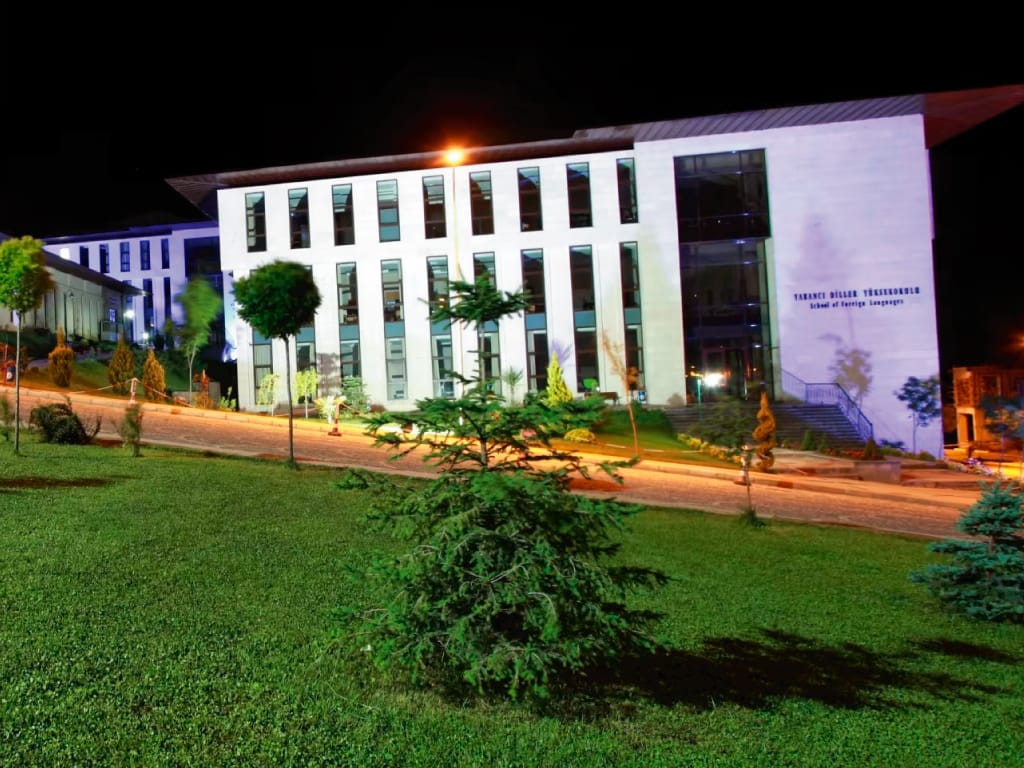
Gerekli Belgeler
Established by the Gaziantep Education and Service Foundation in 1980 under the leadership of the late Hasan Kalyoncu and other entrepreneurial and education-loving philanthropists, the foundation embarked on a journey emphasizing the importance of civil society organizations in combating ignorance, poverty, and divisions through education, aid, and charity. These idealistic individuals, with a strong sense of responsibility towards society, focused on long-term, costly, and patience-demanding activities such as education to make a difference.
Since its establishment, the Gaziantep Education and Service Foundation has provided scholarships, accommodation, and all necessary support to intelligent, hardworking, successful, yet needy students at every level of education. Through the support of hundreds of students who serve the community and the nation, the foundation is currently undertaking significant responsibilities.
With the aim of organizing educational services, the foundation has established institutions and, in this regard, founded the Private Erdem Schools in 1998. Today, it has become a distinguished institution providing education from primary school to science high school in Gaziantep.
Another important project of the foundation was to establish a university. Combining global trends, its strategic position in the region, and its own core values, the foundation aimed to produce graduates who would receive education and conduct research in a university with universal quality and standards. With this aim, Gazikent University was established in 2008, and following the death of its founder Hasan Kalyoncu in 2012, it was renamed Hasan Kalyoncu University.
The vision and mission of Hasan Kalyoncu University have been shaped around fundamental values such as freedom and critical thinking, universality of science, research spirit, commitment to human rights and freedoms, and respect for the environment. The university aims to offer an original education model based on these values, striving to become a respected institution nationally and internationally in science, culture, art, and technology.
The university has set three main goals: providing quality education, conducting scientific research, and producing projects to meet the needs of society. It aims to achieve sustainable success by progressing towards these goals.
HKU emphasizes the importance of international contacts and cooperation, offering its students broad opportunities, including:
1.English Preparatory Program: After completing the English preparatory program, students have the opportunity to receive English education abroad for a certain period at affiliated institutions. This allows them to improve their language skills and experience education in a different culture.
2.Erasmus Exchange Program: HKU students have the opportunity to study at universities in EU member countries during certain periods under the Erasmus Exchange Program. This program enables students to study in a different educational environment, meet new cultures and people.
3.Cultural Diversity: HKU provides students with the opportunity to share the campus with faculty members and students from different cultures. This allows students to learn and interact in a culturally diverse environment, helping them gain a broad perspective internationally.
HKU strives to provide an environment that supports its students in acquiring international experiences and succeeding in the global world. Through these opportunities, students have the opportunity to graduate competitively and culturally enriched on the international stage.
From the moment students and faculty members step onto campus, they become involved in professional life. Bringing together experienced executives, experts, and masters in the professional field, the university creates opportunities for students under the title of Industry Applications. Thus, HKU acts as a bridge between geographies, bringing together academic and professional lives.
The university's research centers provide a fertile ground for this productive collaboration. These include units such as the Science, Technology, and Research Center, the GAP Research and Application Center, the Migration, Population, Education, and Employment Issues Research and Application Center, and the Sustainable Environment Research and Application Center. These centers enable students and faculty members to gain practical experience by bringing academic knowledge together with industrial applications, thus providing a more qualified education and research environment.
The university supports its students and graduates in looking confidently to the future by offering career support. The Center for Academic Support and Employability (HKU CASE) provides support to students for this purpose. For HKU, the university is more than just a diploma. This is where CASE comes into play, assuming an important role in preparing students for life after school. It develops career plans in collaboration with students and helps them find jobs. Thus, students can successfully enter the business world after graduation.